- Home
- McBain, Ed
Killer's Payoff Page 10
Killer's Payoff Read online
Page 10
“I’m Cotton Hawes. How do you do?”
Fielding opened the lower half of the door and stepped onto the landing, extending a browned hand.
“Glad to know you,” he said, and they shook. Fielding’s eyes darted to the white streak in Hawes’s otherwise red hair. “That a lightning burn?” he asked.
“No,” Hawes said. “I was knifed. The hair grew in white.”
Fielding nodded. “Fellow up here got hit by lightning. Like Ahab. He’s got a streak something like that. How’d you get knifed?”
“I’m a cop,” Hawes said. He was reaching into his back pocket for identification when Fielding stopped him.
“You don’t need it,” he said. “I spotted the shoulder holster when you were bending as you came up the steps.”
Hawes smiled. “We can use a man like you,” he said. “Come on down to the city.”
“I like it up here,” Fielding said graciously. “Who you chasing, Mr. Hawes?”
“A ghost,” Hawes said.
“Not likely to find many of those around here. Come on inside. I’ve been hankering for a drink, and I hate like hell to drink alone. Or aren’t you a drinking man?”
“I can use one,” Hawes said.
“Of course,” Fielding said, as they went into the cabin together, “I know cops aren’t allowed to drink on duty—but I’m not likely to write a letter to the commissioner. Are you?”
“I hardly ever write letters to the commissioner,” Hawes said.
“Didn’t think you did,” Fielding answered.
They were inside the lodge now. A huge stone fireplace dominated the room. Flanking the fireplace, in the same pattern as the steps outside, was another double set of stairs leading, apparently, to rooms just below the peak of the roof. There were four doorways off the main room. One of them was open, and Hawes could see through it into a kitchen.
“What’ll it be?” Fielding asked.
“Scotch neat.”
“I like a man who drinks his whisky neat,” Fielding said, grinning. “It tells me he likes his coffee strong and his women soft. Am I right?”
“You’re right,” Hawes said.
“Tell you something else about yourself, Mr. Hawes,” Fielding said. “I’ll bet you’ve never put a bullet in an animal or a hook in a fish unless you were hungry.”
“That’s true,” Hawes said.
“Ever shot a man?”
“No.”
“Not even in the line of duty?”
“No.”
“Were you in the service?”
“Yes.”
“See action?”
“Yes.”
“And you never shot anyone?”
“I was in the Navy,” Hawes said.
“What rank?”
“Chief petty officer.”
“Doing what?”
“Torpedoes,” Hawes said.
“On what?”
“A P.T. boat.”
“Chief petty officer on a P.T. boat?” Fielding asked. “You were practically second in command, weren’t you?”
“Practically,” Hawes said. “The skipper was a j.g. Were you in the Navy?”
“No, but my dad was. He talked about it a lot. He was a regular Navy man, you know. A commander when he died. He’s the one built this lodge. He used to come up here whenever he had leave. He loved the place. I guess I do, too.” Fielding paused reflectively. “Dad died in Norfolk, behind a desk. I guess he’d have liked to die one of two places. Either on a ship, or here at the lodge. But he died in Norfolk, behind a desk.” Fielding shook his head.
“You own the lodge now, Mr. Fielding?” Hawes asked.
“Yes.”
“I guess I came to the wrong place,” Hawes said.
Fielding looked up. He had poured the whisky, and he brought it to Hawes and then said, “How do you mean?”
“I didn’t realize it was a private lodge. I thought you took guests.”
“I do. Five at a time. It’s my living. I guess I’m what you’d call a bum.”
“But you don’t have any guests now?”
“Nope. All alone this week. I’m mighty glad to see you.”
“Are you open all year round?”
“All year round,” Fielding said. “Cheers.”
“Drink hearty.”
They drank.
“Were you open around September first of last year?” Hawes asked.
“Yep. Had a full house.”
Hawes put down the shot glass. “Was one of your guests a man named Sy Kramer?”
“Did he do any hunting?”
“He sure did. Out every day. Brought back all kinds of stuff.”
“Deer?”
“No, the deer season doesn’t start until October. But he got crows and vermin—and I think he got a red fox.”
“Did he spend a lot of money while he was here, Mr. Fielding?”
“On what?” Fielding asked. “Nothing to spend money on in the mountains.”
“Was he carrying a lot of cash?”
“If he was, he didn’t say anything about it to me.”
“Did he come up alone?”
“Yep. I sometimes get them in pairs or in threes, or sometimes a party of five rents the whole lodge. This isn’t a whorehouse, Mr. Hawes. I only take men who want to hunt…or fish. I’ve got my own cabin back of the lodge. I entertain girls there frequently…but that’s private enterprise. I’m intruding on nobody’s morals but my own. Any man is free to do whatever the hell he wants to, I figure, but if he comes to my lodge, he comes to hunt or fish. He can screw around on his own time.”
“Kramer came up alone, then?”
“They all did that trip. Isn’t very often that happens, but this time it did. Not one of the five knew each other before they got here.”
“You had five guests the week Kramer was here?”
“Yep, and all from the city. Now, wait a minute, wait a minute. One of them checked in on a Wednesday, and he left before the others. He was a good hunter, that one. Fellow named Phil Kettering. Hated to leave. I remember on the Wednesday he checked out, he got up real early in the morning, went off into the woods to hunt a little before he started the trip home. Paid me, took all his bags with him, said he wouldn’t be back for lunch, but he just had to get in a little more hunting before driving back. A good hunter, that one.”
“How about the others?”
“Kramer was so-so. The other three…” Fielding rolled his eyes skyward.
“No good?”
“Bunglers. You know. Tripped over their own feet. I guess they were all amateurs.”
“Young then?”
“Two of them were. Let me see if I can remember their names. One of them had a real queer name, foreign sounding. Just give me a minute…Do you want another drink?”
“Thanks, no,” Hawes said.
“Will you be staying for dinner?”
“I don’t think so. Thanks a lot.”
“Be a pleasure to have you.”
“I really have to get back to the city. I’m overdue now.”
“Well, if you want to stay, speak up. Won’t be any trouble at all. Gets lonely as hell here when the house is empty. Now, let me see. This fellow’s name. José? Was that it? Something Spanish like that…but not his second name. That was hundred-per-cent pure white American Protestant. Joaquim! That was it. Joaquim. That’s the way it’s pronounced, even though you spell it with a J. Ho-ah-keem. Joaquim Miller, that was it. Some combination, huh?”
“He was one of the young ones, is that right?”
“In his thirties. Married fellow. An electrical engineer, I think. Or an electronics engineer, one of the two. His wife had gone to California to visit her mother, who he didn’t get along with. So he came up here to hunt. God, he should have stayed in the city. I don’t think he liked the hunting at all. Didn’t get a damn thing but a cold in his head.”
“How about the others?”
“The other young fellow wa
s about forty, forty-two, pretty well-fixed. Partner in an advertising firm, I think. I got the feeling his wife and him were headed for the divorce courts. I think his getting away from her for a week was a sort of a trial separation. That was the feeling I got, anyway.”
“What was his name?”
“Frank…something. Just a minute. Frank…Reuther, Ruther, that was it Without an E. Just Ruther. That was his name.”
“And the old man? What about him?”
“Sixtyish. Tired businessman. Got the feeling he’d tried everything from skiing to water polo. This was his week to try hunting. It was quite a week, I’m telling you.”
“How do you mean?”
“Oh, nothing, except that Kettering got a little bored with the beginners’ talk, that’s all. He and Kramer hit it off pretty well because he had some inkling of what it was all about. These other fellows, well. Not that they couldn’t shoot. They could shoot, all right. Any damn fool can hit a tin can on a back fence. But shooting and hunting are two different things. These men just weren’t hunters.”
“Was there any trouble that week?”
“How do you mean, trouble?”
“Any fights? Arguments?”
“Yes. One. Kramer got into a little tiff with one of the fellows.”
“Which one?” Hawes asked, moving quickly to the edge of his seat.
“Frank Ruther. The advertising man.”
“What was the argument about?”
“Clams.”
“What?”
“Clams. Kramer was talking about how good steamed clams were. Ruther told him to please change the subject because it made him ill just to think about clams. We were all at the dinner table, you see. Well, Kramer wouldn’t change the subject. He began telling about how to prepare them, and how to serve them, and I guess Ruther got a little sick.”
“What happened?”
“He got up and yelled, ‘Will you shut your goddamn mouth?’ He was a little touchy to begin with, you understand. Either that divorce theory of mine, or something else. Whatever it was, he was real touchy.”
“Any blows exchanged?”
“No. Kramer told Ruther he could go straight to hell. Ruther just left the table.”
“Who’d the other men side with?”
“Funny thing there. I told you Kettering and Kramer had hit it off pretty well, mainly because Kramer knew a little bit about hunting. Well, this was the day before Kettering was supposed to leave. He got pretty p.o.’d at Kramer. Told him he should have had the decency to shut up when he saw the talk was making another man sick. Kramer told him to go to hell, too.”
“Sounds like a lovely fellow, Kramer does.”
“Well, I think he knew he was on the wrong end of the argument. Lots of fellows, when they know they’re wrong, they just plunge ahead and try to make it right by making it wronger.”
“What happened when he told Kettering to go to hell?”
“Kettering got up from the table and said, ‘Would you care to repeat that outside, Sy?’ The other fellows—Miller and the old man—finally cooled off Kettering.”
“Was Kramer ready to fight?”
“Sure. He was committed. The only way he could stop making an ass of himself was to make a bigger ass of himself. But I think he was glad Miller and the old man stepped in.”
“What’s the old man’s name?”
“Murphy. John Murphy.”
“He from the city, too?”
“Sure.” Fielding paused. “A suburb, but that’s the city, ain’t it?”
“This thing between Kramer and Kettering? Did Kettering seem very angry?”
“Very. It lasted through the next day. He didn’t even say good-by to Kramer when he went off into the woods.”
“He did say good-by to the other men, though?”
“Yes.”
“Then what happened?”
“He loaded his bags into the trunk of his car, and took off. Drove his car around the lake a ways. Said he’d head for the highway as soon as he’d bagged a few that morning. He’d come down for breakfast very early. The other men went off hunting about an hour later.”
“Kramer go with them?”
“No. He went into the woods, but alone. He was pretty surly that morning. He resented Kettering’s interference, and I guess he felt the other men had sided with Ruther, too. In any case, Miller and Murphy went with Ruther. Kramer went alone.”
“Can we get back to Kettering for a moment?”
“Sure. I’ve got all the time in the world. Sure you won’t stay for dinner?”
“I’m sorry, I can’t. Did Kettering threaten Kramer in any way?”
“You mean…threaten his life?”
“Yes.”
“No, he didn’t. Why?”
“Do you think…do you think his anger was large enough to last from September to now?”
“I don’t know. He was pretty damn sore at Kramer. He’d have beat him up sure if Kramer had stepped outside with him.”
“Was he angry enough to kill Kramer?”
Fielding reflected upon this for a moment “Kettering,” he said slowly, “was a good hunter because he liked to kill. I don’t hold with that kind of thinking, but that didn’t make him any less a good hunter.” Fielding paused. “Has Sy Kramer been killed?”
“Yes,” Hawes said.
“When?”
“June twenty-sixth.”
“And you think possibly Kettering waited all this time to get even for an argument that happened in September?”
“I don’t know. You said Kettering was a hunter. Hunters are patient people, aren’t they?”
“Kettering was patient, yes. How was Kramer killed?”
“He was shot from an automobile.”
“Mmm. Kettering was a damn good shot. I don’t know.”
“I don’t, either.” Hawes rose. “Thank you for the drink, Mr. Fielding. And thank you for the talk. You’ve been very helpful.”
“It’s been a pleasure,” Fielding said. “Where are you off to now?”
“Back to the city,” Hawes said.
“And then?”
“And then we’ll talk to the four men who were here with Kramer. It’d save us a little time if you had their addresses.”
“I’ve got registry cards on all of them,” Fielding said. “It doesn’t take a cop to know which one you’ll look up first.”
“No?” Hawes said, grinning.
“No, sir. If I were Phil Kettering, I’d start getting a damn good alibi ready.”
11.
SAND’S SPIT WAS A suburb of the city.
There was a time when the long finger of land served only two interests: that of the potato farmers and that of the East Shore estate owners. The farms covered most of the peninsula, rushing east and west almost to the water’s edge. The estates crowded the choice waterfront sites. The farmers sowed their crops and the estate owners sowed their oats. The farmers were interested in reaping, and the estate owners were interested in sleeping. Day and night, the estates reverberated with the sound of revelry. The current Stem musical star, the tight-lipped star of silent films, producers, directors, artists, tennis players, all were entertained daily on the estates. The stars enjoyed the good clean fun on the estates. The farmers toiled in the potato fields.
And sometimes, after the sun had dropped its molten fire into the black waters of the ocean, when the potato fields rested black and silent under a pale moon, the farmers would walk down to the beach with blankets. And there they would lie on the sand and look up at the stars.
And sometimes, after the sun had dropped behind the Australian pines lining the farthermost hundred acres of an estate, after the guests had drunk their cognac and smoked their cigars, the estate owners would walk down to the beach with their guests. And there they would lie on the stars and look down at the sand.
All this was long, long ago. When the war came and it was no longer an easy thing to get help to run the twenty-five-room ho
uses, when it was no longer an easy thing to get fuel to heat the twenty-five-room houses and the indoor tennis courts, the owners began to sell the estates—and began to discover there were no buyers for them. And shortly after the war, the potato farmers discovered they were not sitting on potato land; they were sitting on gold. An industrious builder named Isadore Morris bought the first two hundred acres of potato land for a song and built a low-cost housing development for returning veterans, naming the development “Morristown.” Isadore Morris started a boom and a way of life. Other builders leaped onto the Morris bandwagon. Land that originally was priced high at two hundred dollars an acre was now going for ten thousand dollars an acre. The builders subdivided the acreage into sixty-by-a-hundred plots, and the exodus from the city to Sand’s Spit was on.

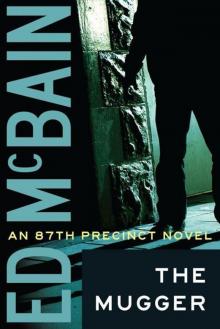 87th Precinct 02 - The Mugger
87th Precinct 02 - The Mugger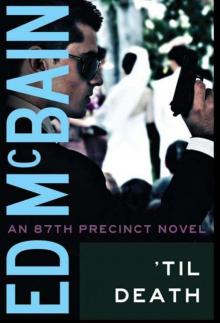 87th Precinct 09 - Til Death
87th Precinct 09 - Til Death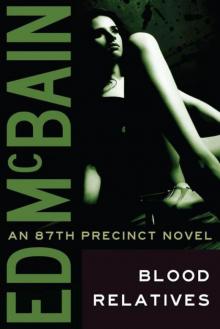 Blood Relatives (87th Precinct)
Blood Relatives (87th Precinct) Killer's Payoff
Killer's Payoff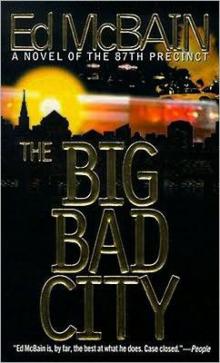 The Big Bad City
The Big Bad City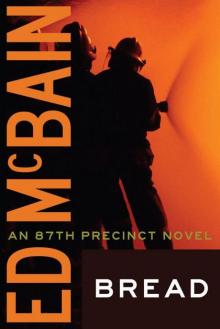 Bread (87th Precinct)
Bread (87th Precinct)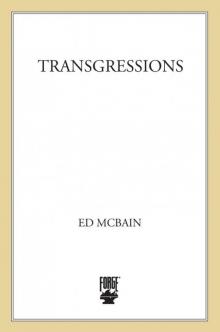 Transgressions Vol. 3
Transgressions Vol. 3 Runaway
Runaway So Long As You Both Shall Live (87th Precinct)
So Long As You Both Shall Live (87th Precinct)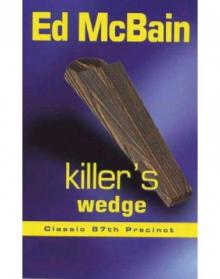 Killer's Wedge
Killer's Wedge